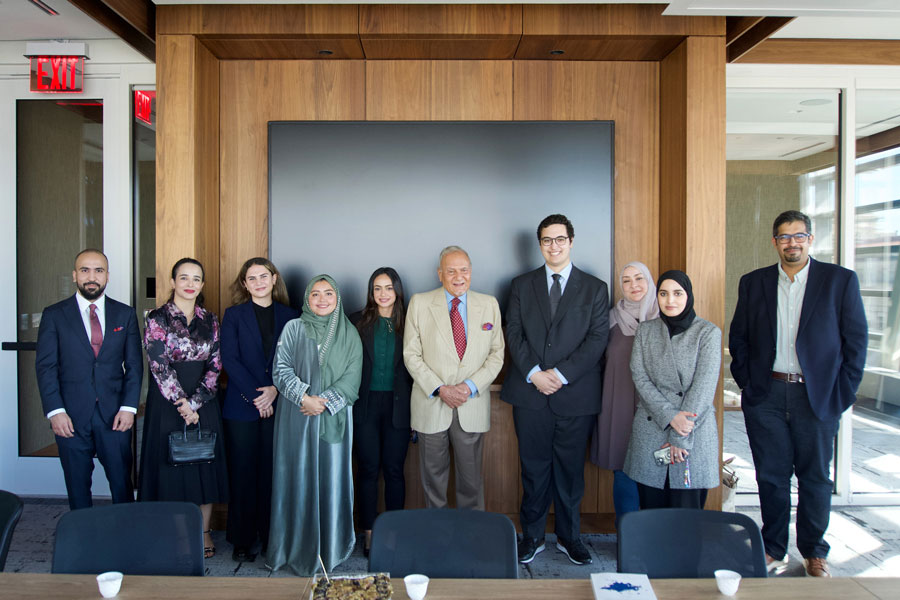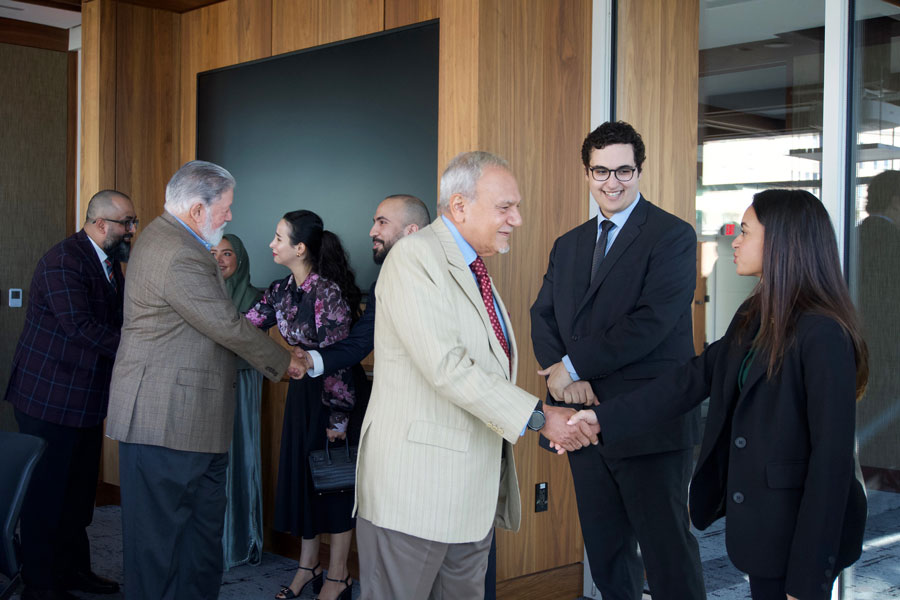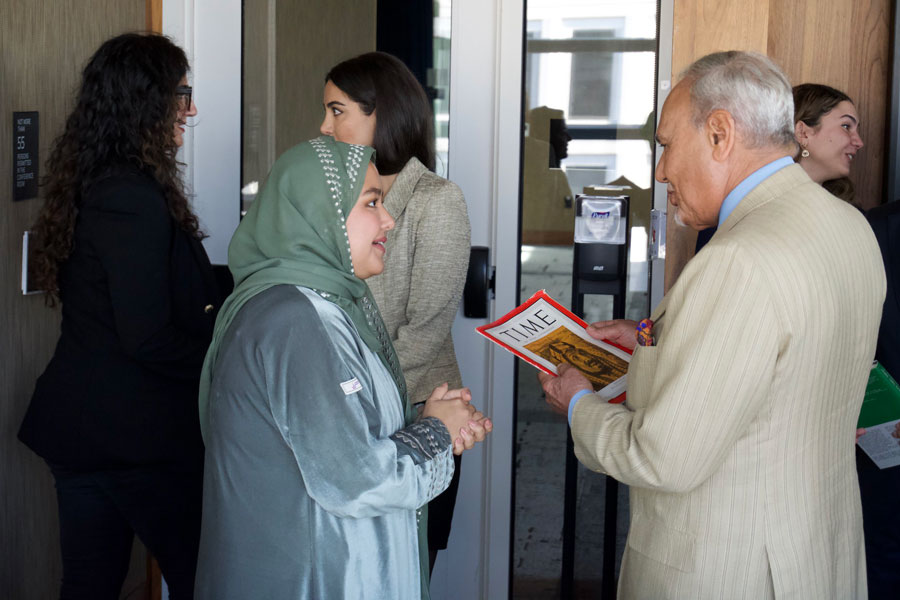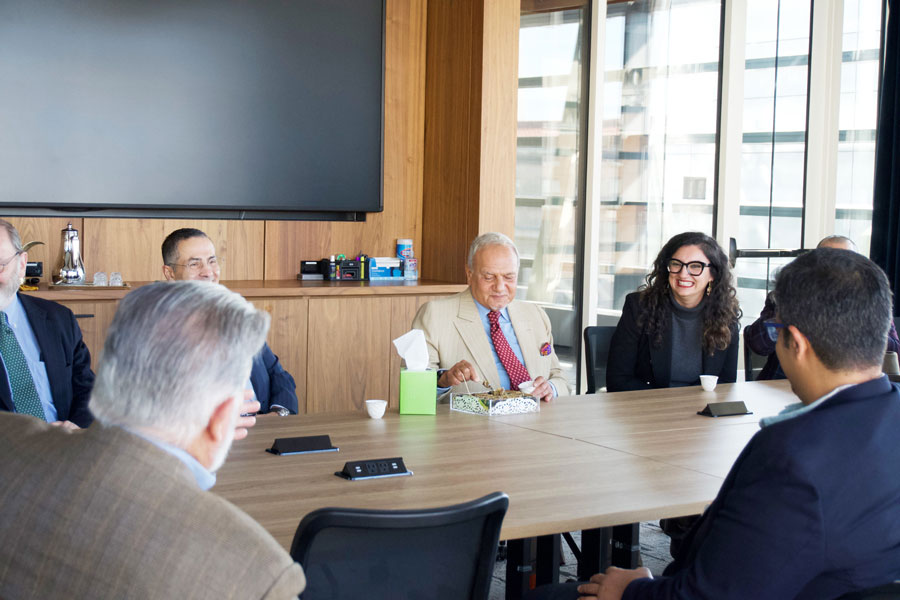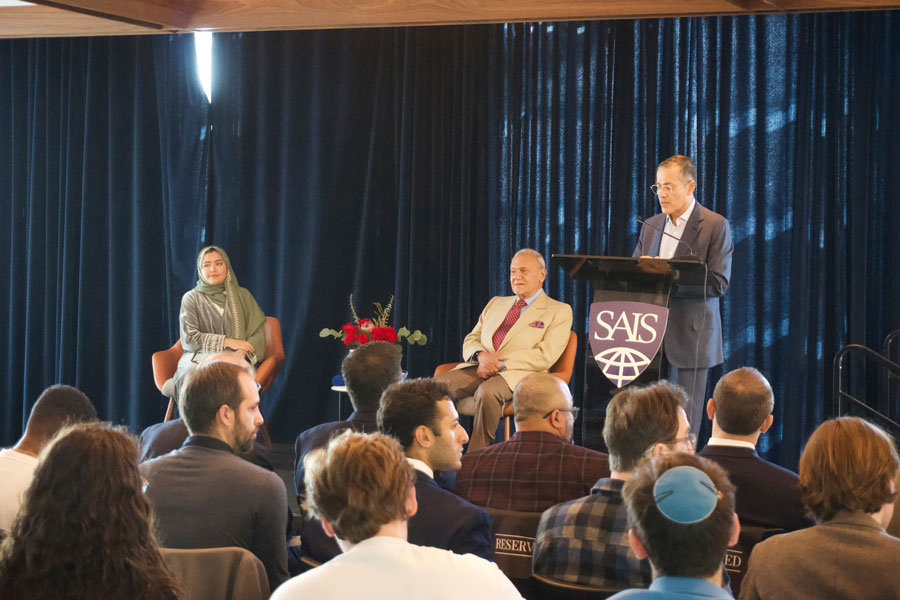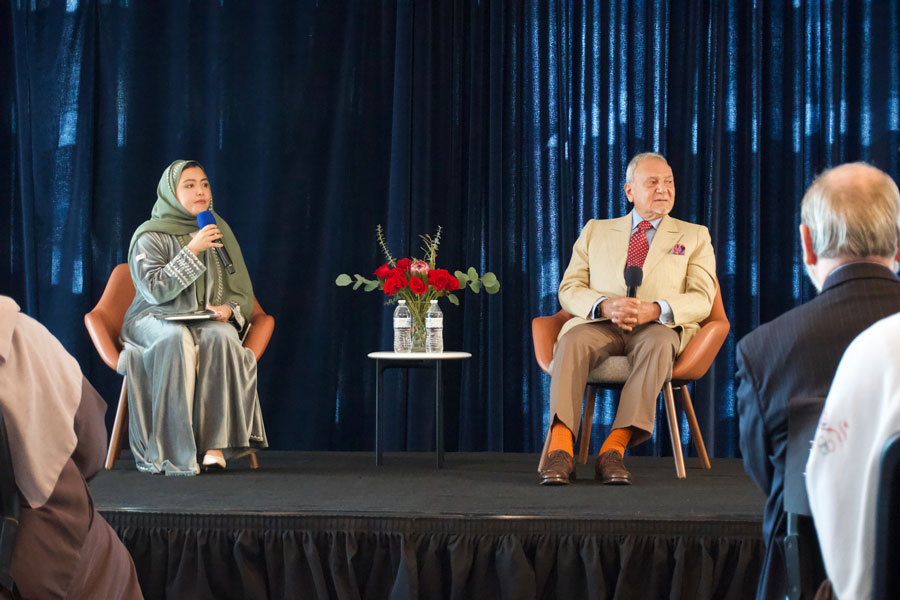A Conversation on Diplomacy, Intelligence, and Middle East Policy with Prince Turki Al-Faisal
October 30, 2024
During a visit to Johns Hopkins SAIS on October 30, 2024, Prince Turki Al-Faisal, former Saudi ambassador to the United States and the United Kingdom, and former head of Saudi Arabia’s General Intelligence Directorate, shared his insights on a range of geopolitical issues, including Saudi foreign policy and the Arab Israeli conflict.
The moderated conversation was hosted by the SAIS Middle East Focus Area. In a candid discussion with PhD candidate Shahad Turkistani, Prince Al-Faisal's extensive experience provided students with a rare access to the perspective of a key figure who has helped shape Saudi diplomacy for decades.
Prince Al-Faisal discussed the intersection of intelligence and diplomacy, emphasizing that intelligence- gathering is not just about covert operations but about providing policymakers with accurate, actionable information. He reflected on his time as head of Saudi intelligence, noting that intelligence was a critical tool for shaping diplomatic strategies and ensuring that foreign policy remains grounded in reality. He also expressed his belief in the power of public diplomacy in today’s interconnected world, particularly through social media, which allows for direct engagement with foreign publics.
In response to questions about his career, Prince Al-Faisal offered advice for SAIS students pursuing careers in diplomacy and international relations. Drawing from his own experience, he emphasized the importance of developing a global perspective, being intellectually curious, and always seeking a deeper understanding of the cultures and histories of the countries with which you engage.
"Intelligence officers have must be as well-read as anybody, but perhaps even more so because they tend to be taken to task by their leaders if they are not that well- aware of what is going around them," he said. He also encouraged students to remain patient and persistent, especially when faced with setbacks or the slow pace of diplomacy.
On the topic of Iran’s nuclear ambitions, Prince Al-Faisal underscored Saudi Arabia’s concern about the potential for nuclear proliferation in the region. “We have a potential threat from Iran because of its ambitions and the way it is going about developing its nuclear research and development, but we have an existing nuclear power in the Middle East, which is Israel. And, even by Israeli accounts, Israel seems to have more than 200 atomic weapons in its armory.”
Al-Faisal reiterated the Saudi Arabia's long-standing call for a WMD-free zone in the Middle East. Drawing on his own diplomatic efforts, he explained that while such initiatives have gained support internationally, they have failed to gain sufficient backing from major powers.
The conversation also turned to the Arab-Israel conflict, with Prince Al-Faisal discussing the complex history of U.S.-Saudi relations. He condemned both the Hamas attack on Israel and the Israeli response, drawing attention to the disproportionate use of force and the resulting Palestinian civilian casualties, and asserting that the death of innocent people, regardless of nationality, is unacceptable. He added: "We want the United States to support us in establishing a ceasefire that will end the killing in Palestine and Lebanon, and everywhere around the area, and also the permanent establishment of a Palestinian state, to represent the Palestinian right of self-determination, and the right to a state and the capital."
Prince Al-Faisal's insights on the intersection of intelligence, diplomacy, and global politics offered valuable lessons for students and policymakers alike. The session concluded with Prince Al-Faisal urging the United States to play a more active role in pressuring Israel to support Palestinian self-determination.
